Article Contents
Introduction
Online exams are gaining ground rapidly, and rightfully so. They are cost-effective, time-consuming, resource-efficient, and convenient for all the stakeholders too.
While online examinations might not completely replace offline exams, they can surely augment the online assessment endeavours of educational institutions and organizations.
However, with the convenience of online exams, there are some challenges that administrators need to take into consideration.
Conducting an exam with technology can be easy, but it also poses security risks for those who administer or monitor them- especially hackers looking at compromising sensitive data, which could lead to identity theft!
What is an Online Exam?
Using technology, you can assess candidates related to a particular subject/ topic. Traditional pen and paper-based exams are replaced with computer-enabled digital assessments, which can simplify many administrative activities for the institute.
What are the challenges of an Online Exam?
Well, before we can start with the challenges being faced with Online Exams, let me tell you technology has come far away and has developed solutions for many of the challenges already.
Location Constraint
Online Exams offer the freedom to appear for the same from any remote location of your choice.
An insecure Online exam provides an opportunity for candidates to get help from external sources while attempting the exam online. If proper security measures are not taken, then online examination implementation may result in increased activity of malpractice.
Freedom to browse the web and copy
An Online Exam from a remote location sounds more like an invitation for an Open Book Test (the same one that we used to appear for when we were in school).
A candidate might open any source of their choice and copy the answer content within minutes.
Well, you, as an exam controller, don’t have any control over this malpractice, do you?
Frankly, an Online Exam seems like an open ground to cheat and attempt malpractice against the candidate who is appearing for the same.
Here are 6 ways to secure your online exams-
1. Video Proctoring: Live streaming of Online Exam

The greatest advantage that Online Exams have ever offered is remote exam conduction; it allows the candidate to appear for the exam from any remote location of their choice.
Parallel to this great advantage, the process encountered many shortcomings in terms of security. Minimizing the increasing rate of malpractices became inevitable with the help of Remote Proctored Online Exams.
What does Online Proctoring mean?
Proctoring refers to the activity of supervising or monitoring an examination activity. Similarly, Online Proctoring refers to the supervision or invigilation of an Online Exam from a remote location.
Online Proctoring extends the freedom to invigilate from a remote location to the invigilator; in other words, the invigilator becomes a remote proctor and ensures the security and integrity of the Online Exam.
What is Video Proctoring?
To be very specific, Video Proctoring is a mechanism that uses live video streaming or recorded video as a medium to ensure the security and integrity of an Online Exam.
Video Proctoring uses the web camera mounted on the candidates’ computer as the source to record the video for the proctoring activity.
How does Video Proctoring work?
Video Proctoring works parallel to the Online Exam process. When a candidate is all set to appear for an Online Exam, he/she needs to log in to the system on which the Invigilator or Remote Proctor is already logged in from the other end.
Initially, the candidate has to complete the formal identity verification process, where the remote proctor shall confirm the identity of the candidate.
The proctor would verify the candidates’ identity against the identity proof submitted at the time of registration.
Post the successful verification session, the candidate can proceed with the Online Exam.
Video Proctoring activity can be executed with two different sets of actions.
1. Video Proctoring with Live Streaming:
The remote proctor would continuously monitor the remote candidate appearing for the exam through completely live video streaming.
If the proctor notices any suspicious activities or any signs of malpractice through the visuals being displayed, he/she can directly prompt the candidate and hold the right to suspend the Online Exam conduction at any point.
2. Video Proctoring with Recorded Video:
In this very case, the proctor can go offline once the verification is done. With the webcam mounted on the computer, the candidate would record the complete video for the Online Exam activity.
The recorded video would be saved on a cloud server and would be available for evaluation by the proctor at any later point in time.
The proctor would watch the complete video for the Online Exam and confirm the integrity and security of the process. Video Proctoring eases out a lot of Online Exam Security hassles and also saves you a considerable amount of time and money.
2. Image Proctoring: Clicks pictures during Online Exam
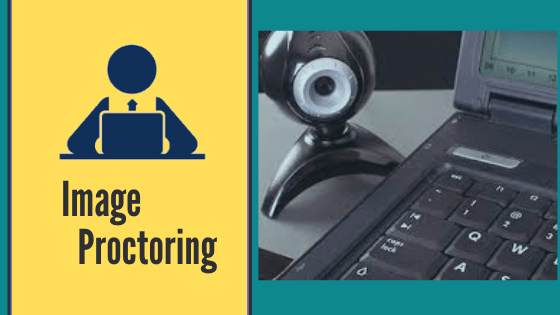
Image Proctoring is yet another mechanism of Online Proctoring which helps you conduct secured online exams under limited internet connectivity situations.
What is Image Proctoring?
Image Proctoring is a lightweight Online/Remote Proctoring mechanism, which uses a web camera to capture images of the candidate appearing for the Online Exam after a certain interval of time.
The proctor can later analyze the bank of images captured during image proctoring activity to ensure the security of the Online Exam.
When is Image Proctoring essential?
If you wish to conduct secured online exams for a locality where no stable internet connection is available or the bandwidth is unstable, Image proctoring can be the most essential security mechanism to prevent malpractices during an Online Exam.
With Image Proctoring, the system would capture a set of 60 to 90 images based on the time or duration of the exam.
Let’s consider if the stipulated time for the exam is 90 mins; then you can arrange a setup where the system would capture 90 images of the candidate, an image per minute.
The proctor would access this set of images stored on a cloud server at a later point in time. The proctor can opt-out out of reporting the candidate if he/she happens to attempt any suspicious activity throughout the captured images of the Online Exam.
3. Face Recognition: Candidate’s Identity Verification
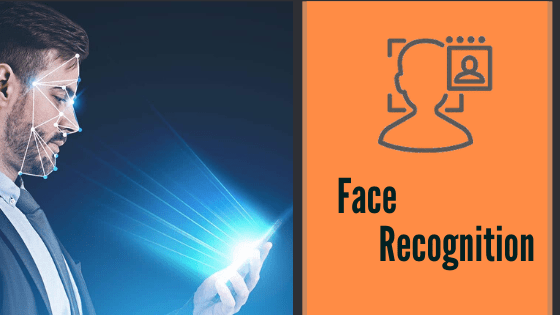
With the mobile phone unlocking feature, Face Recognition has touch-based every individual’s perception towards AI and technology.
Similarly, Face Recognition technology can easily be paired with Video or Image Proctoring, and we have a prominent solution figured out to cut off the disguised face malpractices permanently.
How would Face Recognition function for securing online exams?
A complete software empowered with Video/Image proctoring and AI-powered Face Recognition technology would work as a bridge between the Online Examination Process and Online Exam Security.
The Online Examination Process remains the same; the system would store all the identity verification details at the time of the initial verification process.
The system would match and compare the photo of the candidate appearing for the exam with AI-powered Face Recognition, and allow the candidate to proceed with the Online Exam.
The Video/ Image proctoring mechanism would do its job by recording video/ capturing images after a fixed interval of time.
Ultimately, AI-powered Face Recognition would compare the face of the candidate appearing for the online exam with the I Card or photo submitted, thoroughly and throughout the video recorded/ for all the images captured.
Any deviation observed in the face of the candidate would be considered malpractice and would be reported.
No offence, there would be a full-fledged core report which would substantially stand the ground for the malpractices reported.
The perfect combination of technologies could turn out to be the best solution to secure online exams and keep them 100% free from malpractices.
4. Audio Proctoring: Ensuring 100% cheating free Online exam

Alongside Video Streaming and Image Capturing, Audio or Voice capturing is an equally essential factor to be considered while ensuring the security of the Online Exam.
With the growing technology, cheating practices have also grown to an extent. Audio Proctoring is one such preventive measure to consider when it comes to seizing the complete security for an Online Exam.
What is Audio Proctoring?
Audio Proctoring is a mechanism that records each bit of voice, sound or noise from the environment where the remote candidate appears for the Online Exam.
The invigilator or proctor can later analyze the audio recorded for suspicious voice notes or distortions.
How does Audio Proctoring secure online exams?
Only visuals might not be able to justify the security of Online Exams. This is why we need a mechanism like Audio Proctoring, which can help us analyze the Online Exam environment for audio or voice malpractices.
Fair chances are there that the candidate appearing for the exam might appear sober in the video and image proctoring, but he/she might be seeking some audio/voice-based help to attempt cheating in the Online Exam.
The audio proctoring mechanism would make sure that the online exam is conducted in a 100% secured and controlled remote environment.
Even the slightest deviations in terms of sound waves would be recorded with Audio Proctoring. The proctor would have full-fledged access to the audio associated with every candidate who appeared for the online exam through the cloud server. The proctor can wisely analyze and identify the malpractices encountered.
It is also possible for the proctor to have video communication with candidates to warn or instruct them about exam rules. Direct Video communication can be done in any language preferred by the candidate.
5. Secure Browser: Bars the candidate from browsing the internet during Online Exam
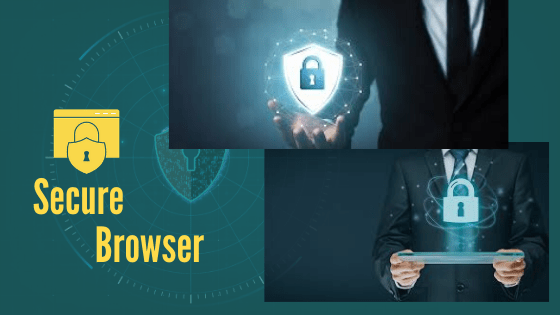
Online Exams and full-fledged internet access might sound like an open ground for cheating to the candidates who are appearing for the online exam. But it could turn out to be a nightmare for them with Secure Browser technology.
What is secure browser technology?
A secure browser is nothing but a preventive mechanism that doesn’t allow the user to open an additional browsing window other than the one through which he/she is connected with the online exam activity
How can a Secure Browser help you secure the online exam process?
Online Exams are supposed to be conducted in an environment that offers good internet connectivity. But, to achieve the desired security and integrity with the Online Exams, a secure browser is just the right approach to follow.
Once a candidate starts the online exam, he/she will not be allowed to access any extra tab or browsing window other than the one through which he/she appears for the exam.
If the candidate attempts to open an additional browsing window, an immediate notification will be sent to the exam controller sitting on the other end. The exam controller holds the authority to suspend the online exam for the candidate who just tried to breach security enforcement.
On the other hand, we are also allowed to make such a provision where the system would voluntarily warn the candidate for the defined number of times on attempting the window switching.
If the candidate continues the same behavior post being warned a set number of times, the system will automatically suspend the Online Exam for him/her. The Secure Browser technique is a simple way to add security mechanisms to your online exam process.
6. Audit Logging: Monitors each click with minute details of the Online Exam

Audit logging technology keeps track of the entire user activity with the help of the IP address of the user.
Audit Logging is a very powerful mechanism that tracks the user for each activity that he/she performs. May it be session Login/Log Out or may it be the navigation between the questions of the Online exam, everything is tracked.
These kinds of logs are recorded for each of the candidates who are appearing for the Online Exam and are accessible to the proctor at a later point in time.
The system can also log how much time the candidate has moved away from the exam window. Advanced screen recording activity can enable the invigilator to view the entire activities of the candidate during the exam process.
The proctor can opt to analyze the Audit Logs for any candidate. If he/she observes any suspicious activity amongst the logs recorded, it can be immediately reported and counteraction could be taken against the candidate.
Bonus Tip to conduct Secured Exams
360-degree proctoring is a cutting-edge reliable solution that has revolutionized the way online exams are administered. This technology uses dual camera streaming ability to provide a high level of security and eradicate the possibility of cheating, ensuring that students are evaluated fairly and accurately. With 360-degree proctoring, educational institutions can administer online exams remotely without the fear of cheating or malpractice.
360-degree proctoring provides a comprehensive view of the exam room. It uses dual camera streaming ability to capture both the student’s face and the surrounding environment, ensuring that any attempts at cheating are immediately detected. This level of security gives educational institutions the confidence to administer online exams without worrying about the integrity of the evaluation process.
Its ability to administer online exams remotely without the fear of cheating or malpractice makes it an ideal solution for educational institutions looking to modernize their evaluation process.
Adaptive and Dynamic Tests to Secure Exams
Adaptive exams offer a secure method for conducting online assessments. This technique presents dynamic question and answer scenarios tailored to each candidate. As the candidate answers a question, the system generates a new set of questions based on their response.
Employing generative AI technology can make the assessment process even more interactive and dialogue-oriented. The AI will pose subsequent questions based on the candidate’s responses, requiring them to provide accurate and relevant answers. This approach ensures that each participant receives a unique set of questions tailored to their competencies, thus enhancing the overall testing experience.
Conclusion
While conducting online exams you cannot ignore the security aspect of the implementation.
Using innovative security mechanisms like Remote Proctoring, Audit logging, and secure Browsers you can ensure the security of the solution. Using Artificial intelligence you can identify and detect cheating patterns.
Many organisations have started using those practices for online exam security
About the Author

Swapnil is a seasoned Information Technology expert with over 15 years of industry experience. He is a well-versed digital thought leader in the education sector and has made meaningful contributions to the field through his work on cutting-edge EdTech platforms.
As a knowledgeable reader and insightful writer, Swapnil regularly shares his expertise on the latest technology trends and developments in both the education and IT sectors.
Swapnil is the visionary founder of Splashgain, a leading Education Technology company in India. Under his leadership, Splashgain has made significant strides in developing innovative solutions for examinations, proctoring, digital admissions, and more.
By collaborating with educational institutions, universities, and corporations, Splashgain is driving the use of AI to transform the education and corporate sector and has already filed a patent for an AI-powered product that is set to disrupt the industry.
Online examinations are gaining ground rapidly. Previously online examinations were conducted mostly in an objective manner. However, with the introduction of technological advancements and innovations, online examinations can now be subjective in nature too. Oral/viva examinations, remote interviews, communication skill assessments, coding, and other technical expertise can also be done through online examinations.
Online examinations come with a plethora of advantages. To start with, these can be conducted with an internet-connected device anytime, anywhere. No infrastructure and logistics costs are involved with online examinations. These are reliable, scalable in nature, and cost-effective too.
Compared to offline tests that require a physical premise, infrastructure, and other logistics, online tests require just an internet-connected device. Examiners can set up tests remotely; students can appear with ease; remote proctoring can be leveraged to ensure that the examinations are conducted in a cheat-free environment.
Proctored exams enabled by cutting-edge online exam management software ensure that students are prohibited from using any background applications, smartphones, and other smart devices, etc.
Users during online exams are instructed to undergo face recognition, user authorisation, and a host of processes, and they are aware that they are being remotely monitored. With remote proctoring, invigilators can track the real-time activities of the candidates with audio/video recording. They have the authorisation to terminate the online exam if the candidates are found to be involved in any sort of malpractice.


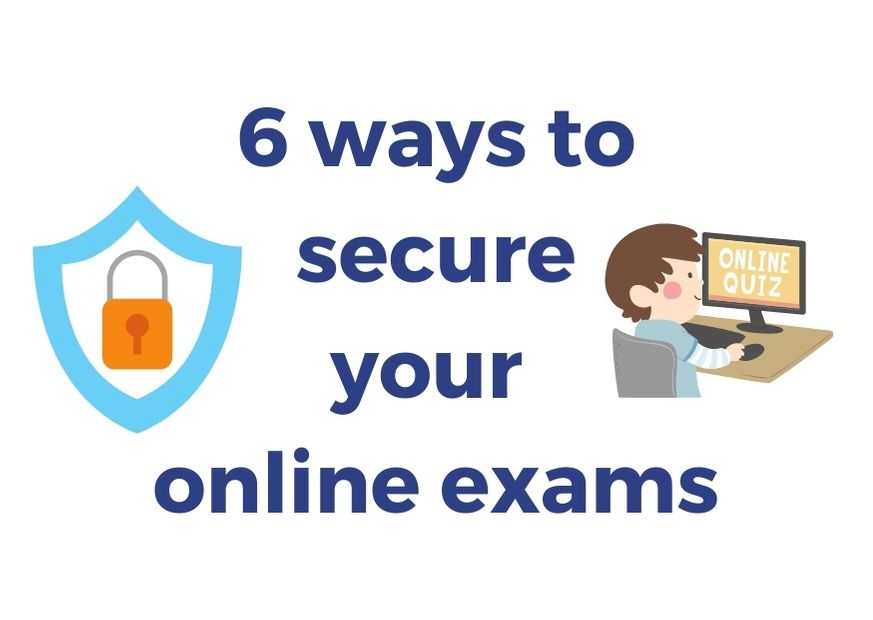

![How Government-Led Exams at 250+ Locations Are Setting New Standards of Integrity [Case Study]](https://www.eklavvya.com/blog/wp-content/uploads/2024/04/Enhancing-Exam-Integrity-Government-Certification-in-250-Locations-150x150.webp)
![Transforming Central Govt. Exams Evaluation: How Onscreen Marking is Leading the Charge [Case Study]](https://www.eklavvya.com/blog/wp-content/uploads/2024/04/How-Onscreen-Marking-Revolutionized-Central-Govt-Exams-Case-Study-1-150x150.webp)

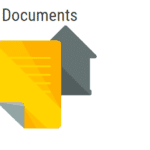











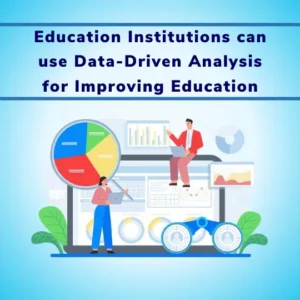
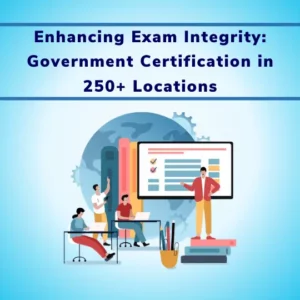
![How Onscreen Marking Revolutionized Central Govt Exams [Case Study]](https://www.eklavvya.com/blog/wp-content/uploads/2024/04/How-Onscreen-Marking-Revolutionized-Central-Govt-Exams-Case-Study-1-300x300.webp)
